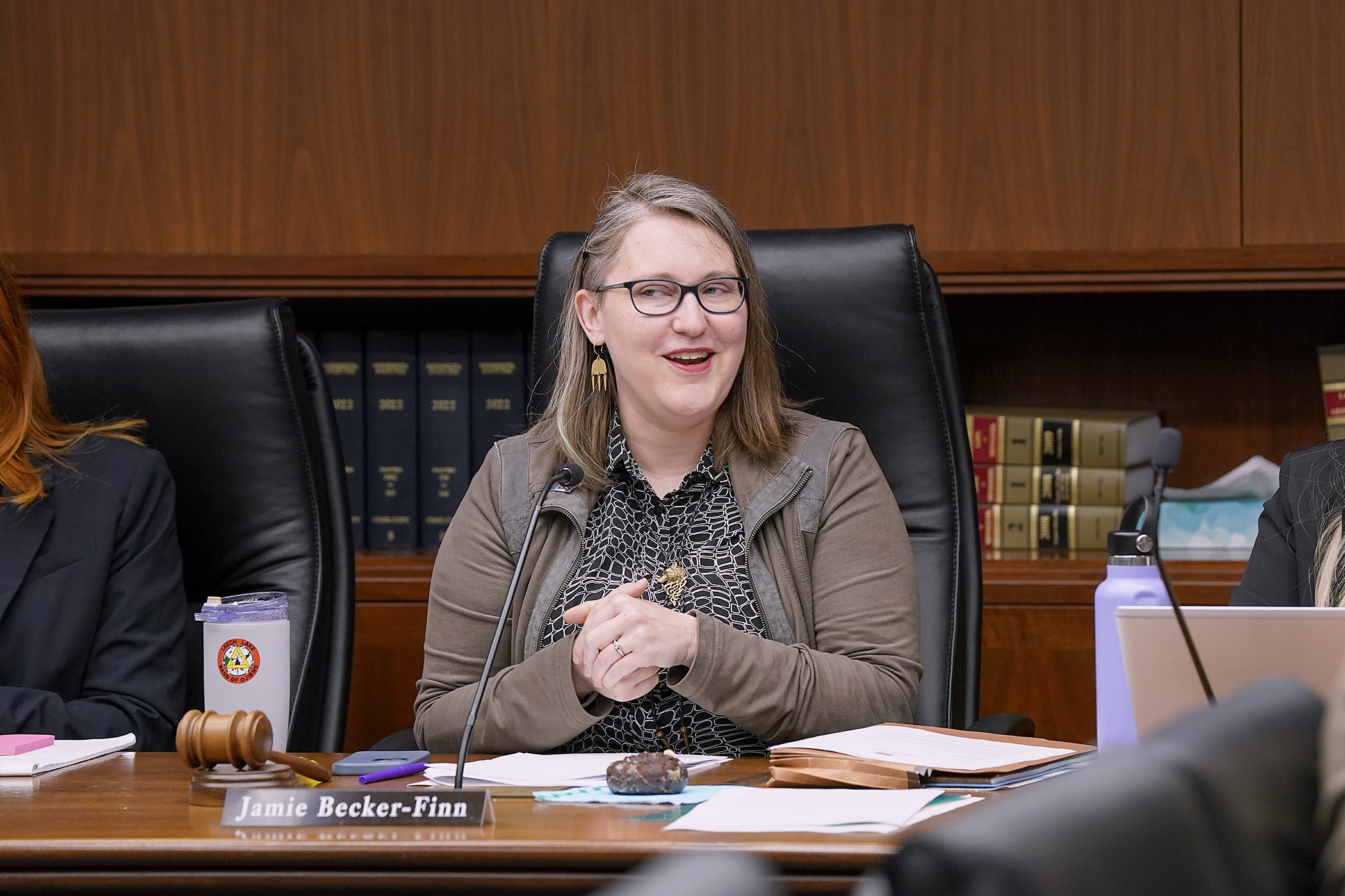Judiciary panel advances $36 million bill to boost pay, expand restorative justice programs

Courthouse security, both physical and in cyberspace, plus pay boosts for courtroom interpreters and those who do mental health examinations in civil commitment and criminal proceedings are the main items set to benefit from a $36 million proposal.
Sponsored by Rep. Jamie Becker-Finn (DFL-Roseville), HF5245, as amended, was approved by the House Judiciary Finance and Civil Law Committee Thursday and sent to the House Ways and Means Committee.
District courts would be the largest beneficiary at $32 million for the 2024-25 biennium; the Supreme Court would receive $4 million, with $3.5 million of that to enhance cybersecurity in all state judiciary system courts.
A one-time appropriation of $500,000 would fund a competitive grant program for courthouse safety and security improvements, including making security assessments, purchasing equipment and technologies, or training. Recipients would need to provide 50% matching funds.
The bill would spend $27.39 million for district courts to hire more courtroom forensic examiners and boost their hourly pay from $125 to $136. They provide mental health examinations in civil commitment and criminal proceedings.
The remainder of the district court funds would be:
- $2.82 million to hire more certified courtroom interpreters for non-English speakers and increase their hourly pay from $65 to $75;
- $1.58 million on the state’s jury program;
- $170,000 on court interpreter travel time; and
- $50,000 on vicarious trauma services for jurors.
[MORE: View the spreadsheet]
Policy provisions
The bill has three policy-only provisions.
An 11-member State Board of Civil Legal Aid would be created to make decisions about legal aid previously made by a Supreme Court advisory council. Funding for the board would be shifted from the Supreme Court’s budget to a separately funded state board beginning in fiscal year 2026.
A change would be made to the Safe at Home program operated by the Office of the Secretary of State. The program is a mail-forwarding service that keeps home addresses of stalking victims confidential.
The bill would expand who is eligible for the program from just Minnesota residents to individuals who certify that they intend to reside in the state within 60 days.
The third policy-only provision came via an amendment successfully offered by Rep. Sandra Feist (DFL-New Brighton) that would allow juveniles convicted of a crime to forgo paying a court-ordered fine if they participate in a local restorative process established by the Office of Restorative Justice.
Created by a 2023 law, the office is charged with establishing and funding programs arranging victim-offender conferences designed to address the root causes of the juvenile’s offense and increase the offender’s connection to community, restore relationships with people affected by the criminal act, and encourage juvenile offenders to take responsibility for the impact of their actions.
The office could use some of $8 million it received for the 2024-25 biennium to provide restitution to crime victims if the juvenile offender participates in a restorative process established by the office.
***
What’s in the bill?
The following are the bills that have been incorporated in whole or in part into the judiciary and civil law supplemental finance bill:
Related Articles
Search Session Daily
Advanced Search OptionsPriority Dailies
Speaker Emerita Melissa Hortman, husband killed in attack
By HPIS Staff House Speaker Emerita Melissa Hortman (DFL-Brooklyn Park) and her husband, Mark, were fatally shot in their home early Saturday morning.
Gov. Tim Walz announced the news dur...
House Speaker Emerita Melissa Hortman (DFL-Brooklyn Park) and her husband, Mark, were fatally shot in their home early Saturday morning.
Gov. Tim Walz announced the news dur...
Lawmakers deliver budget bills to governor's desk in one-day special session
By Mike Cook About that talk of needing all 21 hours left in a legislative day to complete a special session?
House members were more than up to the challenge Monday. Beginning at 10 a.m...
About that talk of needing all 21 hours left in a legislative day to complete a special session?
House members were more than up to the challenge Monday. Beginning at 10 a.m...